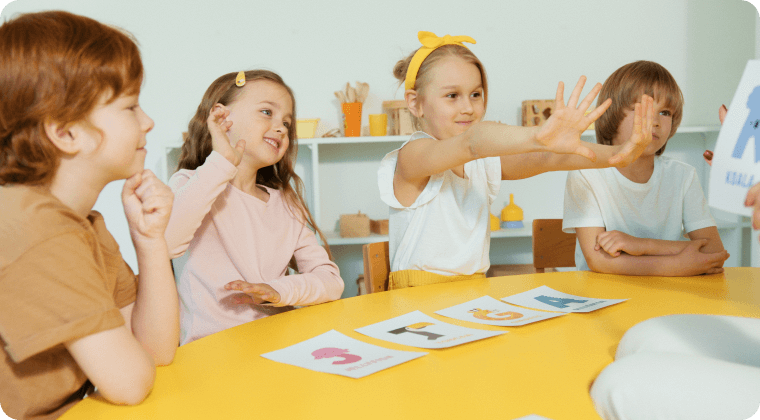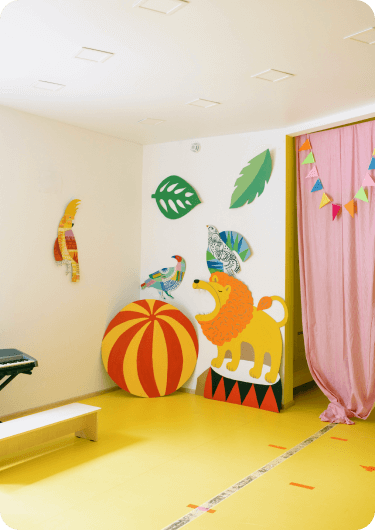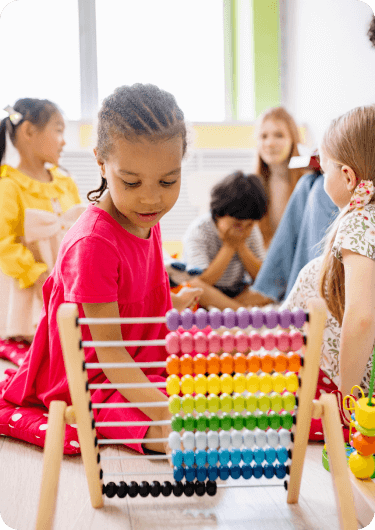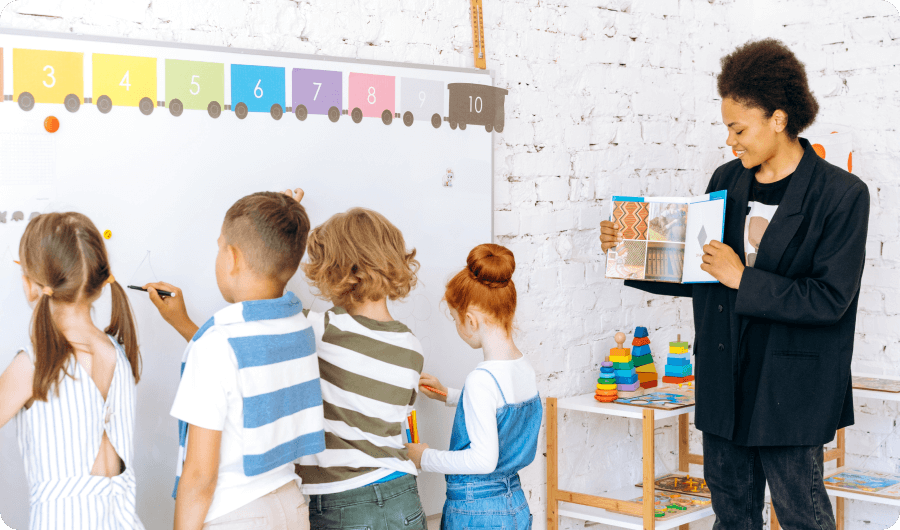We try to make crafts once a week, so I have a ton of options up my sleeve! Here are some of my favorite fall crafts to use in Kindergarten.
As parents, we often hear the importance of play in our child’s development. But what exactly does play do for our child’s brain? How does it help them grow and learn?
In this blog, we will explore the ways in which play develops the brain and why it is important for parents to encourage play in their child’s everyday life.

Social and Emotional Development
Play is essential for a child’s social and emotional development. Through play, children learn to interact with others, share, take turns, and negotiate. They also learn to express and regulate their emotions.
When your child plays with other children at daycare, they are developing crucial social skills, such as empathy and cooperation. They learn to work together, solve problems, and communicate effectively. These skills are vital for success later in life, both in personal relationships and in the workplace.


Cognitive Development
Play is also essential for a child’s cognitive development. Through play, children learn to think, reason, and problem-solve. They learn to explore and experiment, discovering new things about themselves and the world around them.
When your child plays with toys, puzzles, or games at daycare, they are developing critical thinking skills, such as memory, attention, and concentration. These skills are essential for success in school and in life.
Physical Development
Play is crucial for a child’s physical development. When children play, they are developing their gross and fine motor skills. They learn to move their bodies in new and different ways, developing strength, coordination, and balance.
When your child engages in physical play, such as running, jumping, climbing, or dancing at daycare, they are developing their motor skills, which are essential for success in sports, dance, and overall well-being.
Creativity and Imagination
Play is also essential for a child’s creativity and imagination. When children play, they are free to explore their thoughts, feelings, and ideas in a safe and supportive environment. They learn to think creatively, to imagine, and to express themselves.
When your child engages in creative play, such as drawing, painting, singing, or role-playing at daycare, they are developing their creative skills, which are essential for success in the arts, design, and innovation.
In conclusion, play is essential for a child’s development, both socially, emotionally, cognitively, physically, and creatively. It is important for parents to encourage and support play in their child’s everyday life. Daycare centers provide a safe and supportive environment for children to play, learn, and grow, while parents can feel confident that their child is getting the necessary care and support for optimal development.
Search My Blog for More Info


